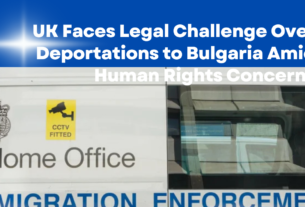The families of British nationals who tragically lost their lives in the recent Air India Flight AI171 crash have spoken out, expressing feelings of abandonment and frustration with the response from the UK government. The Boeing 787 Dreamliner crashed shortly after taking off from Ahmedabad, India, on June 12, 2025, while en route to London Gatwick, resulting in the deaths of at least 279 people, including 53 British citizens. The scale of the disaster marks it as the deadliest air tragedy involving British nationals since the September 11 attacks.
Among the victims were Akeel Nanabawa, his wife Hannaa Vorajee, and their young daughter, a family whose loved ones now face the harrowing task of navigating a complex and, according to them, poorly supported aftermath. Relatives who traveled to India to identify and repatriate the remains reported chaotic and distressing conditions, compounded by a lack of British leadership and crisis management at the local hospitals and morgues. They criticized the absence of an official British crisis response team on the ground during the critical early stages of the recovery effort.
Despite the UK government deploying investigators and forensic experts to assist Indian authorities, families feel that the support offered so far has been insufficient. They have called for a fully staffed crisis team to be sent to India, along with financial assistance to cover the unexpected and overwhelming costs faced by victims’ relatives. Concerns have also been raised about the transparency and efficiency of the identification process, which families say has been hampered by overwhelmed local services and poor communication.
The investigation into the crash is ongoing, with preliminary findings suggesting a possible dual engine failure may have played a role in the tragedy. To help manage the situation, a British reception centre and hotline have been established in Ahmedabad, but many families remain dissatisfied with the overall coordination between UK and Indian officials.
In response to these concerns, the UK government has pledged to enhance its support for the bereaved families, promising to allocate additional resources for repatriation efforts and offer financial aid. Nevertheless, relatives say that these commitments must translate into swift and tangible actions, emphasizing that grief is only compounded when families feel forgotten or neglected during such a devastating time.
As investigations continue, victims’ families demand a thorough and transparent inquiry into the causes of the crash and a more compassionate government response. Their experience underscores the urgent need for improved crisis management and support systems for families affected by international disasters.




